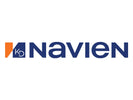- No products in the cart.
Understanding HVAC Warranties: What You Need to Know
21
Mar
Investing in a new heating, ventilation, and air conditioning (HVAC) system is a significant decision for any homeowner or business owner. Alongside considerations of efficiency, performance, and cost, it's crucial to understand the warranty coverage that accompanies your HVAC purchase. HVAC warranties offer protection against defects in materials and workmanship, but the terms and conditions can vary widely among manufacturers and models. In this article, we'll explore the key aspects of HVAC warranties and what you need to know to make informed decisions.
Types of HVAC Warranties:
-
Manufacturer's Warranty: This type of warranty is provided by the HVAC equipment manufacturer and typically covers components such as compressors, heat exchangers, and other essential parts. Manufacturer warranties vary in duration, with coverage ranging from a few years to a decade or more.
-
Parts Warranty: Some HVAC systems come with separate warranties for specific parts, such as motors, coils, or electronic components. These warranties may have different coverage periods and terms than the manufacturer's warranty.
-
Labor Warranty: A labor warranty covers the cost of labor for repairs or replacements of covered components. While some manufacturers include labor coverage in their warranties for a limited time, others may offer it as an optional add-on or require separate purchase.
-
Extended Warranty: Extended warranties, also known as service agreements or protection plans, provide additional coverage beyond the standard manufacturer warranty. These warranties typically cover repairs, labor, and sometimes even routine maintenance for an extended period, offering peace of mind and financial protection against unexpected expenses.
Key Considerations:
-
Coverage Period: Pay attention to the duration of the warranty coverage, including any limitations or exclusions. Longer warranty periods provide more extended protection against defects but may require registration or compliance with specific maintenance requirements.
-
Scope of Coverage: Review the warranty terms to understand which components are covered and under what circumstances. Some warranties may have exclusions for certain parts or damage caused by improper installation, neglect, or misuse.
-
Registration Requirements: Many HVAC manufacturers require product registration within a specified timeframe to activate warranty coverage fully. Failing to register your HVAC system promptly may result in reduced or voided warranty protection.
-
Transferability: Consider whether the warranty is transferable to subsequent owners if you plan to sell your home or business property. Transferable warranties can enhance the resale value of your property and provide added assurance to potential buyers.
-
Exclusions and Limitations: Be aware of any exclusions, limitations, or conditions that may void warranty coverage, such as failure to perform regular maintenance or using unauthorized replacement parts or service providers.
Tips for Maximizing Warranty Benefits:
-
Read the Fine Print: Take the time to thoroughly review the warranty documentation provided by the manufacturer or HVAC contractor. Understand the terms, conditions, and limitations of the warranty coverage to avoid potential disputes or misunderstandings later on.
-
Register Your Product: Complete the product registration process promptly to ensure full warranty protection. Keep records of the registration confirmation and warranty documentation for future reference.
-
Schedule Regular Maintenance: Follow the manufacturer's recommended maintenance schedule to keep your HVAC system in top condition and preserve warranty coverage. Routine maintenance helps prevent breakdowns, prolongs equipment life, and ensures optimal performance.
-
Keep Records: Maintain detailed records of service and maintenance activities, including dates, invoices, and receipts. Having documented evidence of regular maintenance and repairs can streamline the warranty claims process and support your warranty coverage.
Conclusion:
Understanding HVAC warranties is essential for protecting your investment and maintaining peace of mind regarding your heating and cooling system. By familiarizing yourself with the types of warranties available, reviewing the terms and conditions, and following best practices for maximizing warranty benefits, you can ensure that your HVAC system remains covered against defects and malfunctions. Whether you're purchasing a new HVAC system or seeking warranty support for an existing one, being informed about warranty coverage empowers you to make informed decisions and safeguard your comfort and convenience for years to come.













